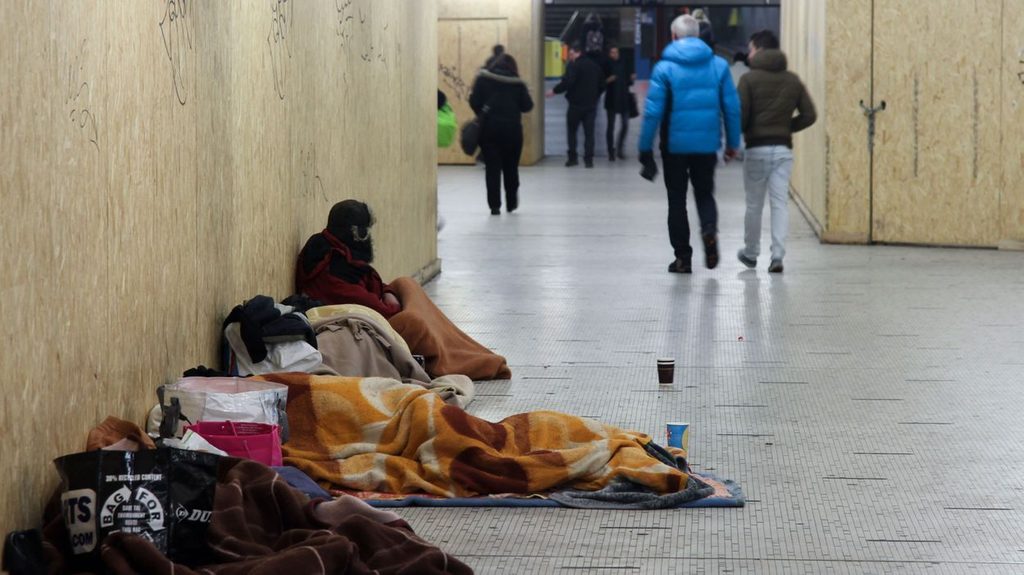The umbrella organisation for homeless persons in the Belgian capital, Bruss’help, counted 7,134 people in its latest tally of homeless and poorly housed people in the Brussels Region.
This operation, carried out on the night of 8 to 9 November, saw an increase of almost 19% compared to the last count, which dates back to 2020, Bruss’help officials told a press conference on Wednesday.
During the last such operation – in 2020 – 5,313 people had been counted. However, new categories were taken into account during the 2022 count, namely people staying temporarily with third parties and people threatened with eviction.
In addition, other situations have been counted among people in institutions. These additional counts should therefore not be taken into account when measuring change, the officials insisted.
Without these figures, the number of people counted came up to 6,317, an increase of 18.9% compared to the last edition, in November 2020
The head count provides a snapshot at a given point in time of people without a roof over their heads in the Brussels-Capital Region.
“The figures obtained are an underestimate of the real situation, but they allow us to draw up an inventory of the situation and reflect the evolution of the phenomenon,” Bruss’help stressed.
Of the 7,134 people counted, 809 spent the night of the count in the public space. People said to be homeless, i.e. counted in the public space or in emergency accommodation, accounted for 33.7% of situations (more than one person in three).
Also according to Bruss’help, successive counts show a steady rise in the number of homeless people over the last 14 years, despite significant public financial intervention.
For the first time, the quantitative figures are accompanied by a vast collection of data on the profiles and trajectories of the people concerned. Of the 2,097 people for whom a questionnaire was completed, the majority were single persons without children (78.0%, compared with 13% single people with children); 42.7% of respondents are Belgian, 11% are nationals of an EU country, and 42.3% have a nationality from outside the EU.
More than half of the respondents had been homeless for a year or more (53.8%).
Related News
- 'Hidden' homelessness: 34% stay with family and friends
- Breaking the 'homelessness cycle' in Molenbeek
- Two homeless people violently attacked in Maelbeek metro station
Finally, the umbrella organisation stressed that the health crisis had had a heavy impact on the most precarious people, despite the immediate mobilisation of those working on the ground to come to their aid and shelter them during periods of confinement.
At the same time, the last two years have been marked by the economic crisis and the refugee reception crisis, while access to affordable housing remains critical in Brussels-Capital Region.
Furthermore, while the figures for 2020 were down, due in particular to the closure of borders, 2021, and particularly 2022, have been marked by an increase in applications for international protection. However, not all people seeking international protection were able to access the federal accommodation facilities made available specifically for people undergoing the procedure, as required by current European legislation.
“These worrying results show above all a sharp increase in the number of homeless people in emergency accommodation and temporary occupancy, largely linked to the reception crisis; and an increase in the number of people without papers and without prospects. We also note that this number is not increasing in the public space. This reflects the fact that, under this legislature, we have significantly increased the supply of housing/accommodation,” commented the Brussels minister responsible for helping the homeless, Alain Maron.
“But as I have always said, it is by working together (Region, Federal Government, municipalities, CPAS, voluntary sector, etc.) that we will succeed in reducing precariousness and the number of homeless people over the long term, by offering them accommodation and appropriate medical, psychological and social support so that they can gradually find their place in society again”, he added.

